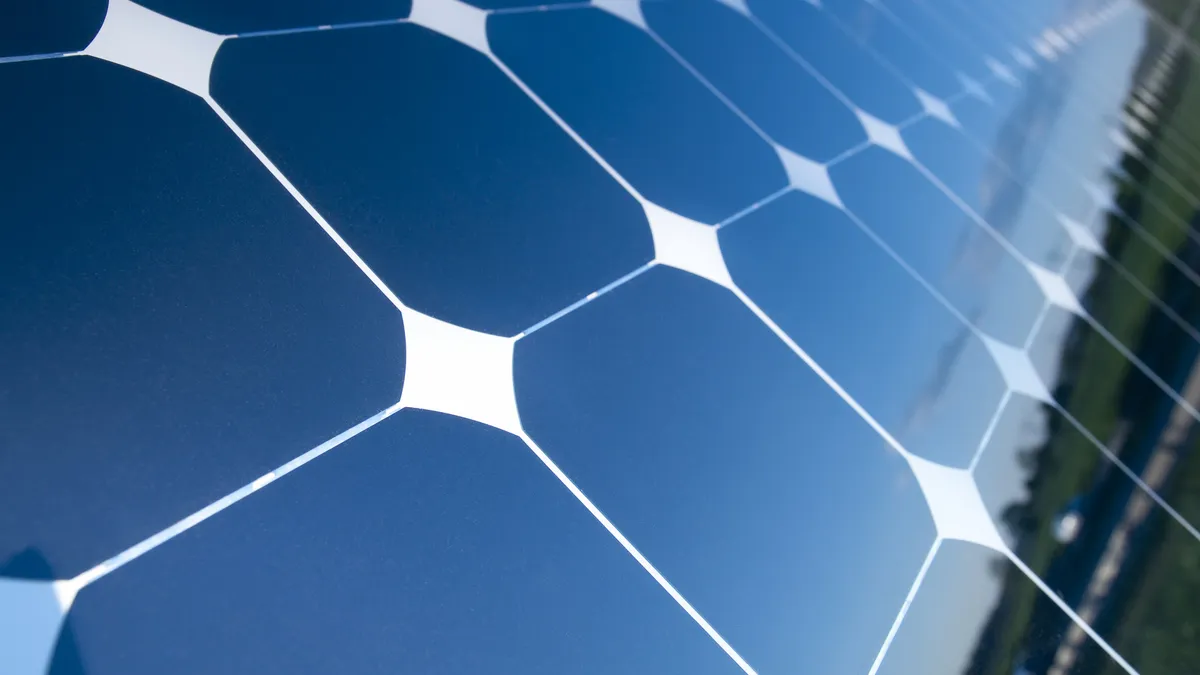Dive Brief:
-
The Solar Energy Industries Association has written a letter to the U.S. International Trade Commission voicing opposition to Suniva’s requested tariffs on imports to crystalline silicon photovoltaic (CSPV) cells.
-
SEIA argues that Suniva, which declared bankruptcy in April, is not representative of the CSPV manufacturing industry and therefore does not have standing to bring the action.
- SEIA also argues the measures Suniva is seeking to have imposed would be “extremely damaging” to the solar power industry in the U.S and imperil some 260,000 jobs.
Dive Insight:
Suniva is seeking tariffs on all solar panels imported into the U.S., blaming a flood of cheap panels from abroad for its April bankruptcy filing. The company also wants the ITC to set a floor price on solar panels. Suniva has asked the ITC to set an initial additional tariff of $0.40/watt and a floor price of $0.78/watt.
The SEIA letter, sent to Lisa Barton, secretary of the ITC, urges the agency not to begin a safeguard proceeding as requested by Suniva. The trade group argues that Suniva accounted for just 21% of U.S. CSPV production in 2016 and 14% in 2015 and notes that producers that make up the balance of U.S. CSPV output have not expressed support for Suniva.
SEIA also says the tariffs sought by Suniva would “undermine project economics and reduce activity along the solar value chain.”
Thirdly, SEIA says Suniva’s proposed measures would undercut actions that would address the underlying problem of a global excess of CSPV manufacturing capacity. The group argues that allies now fighting to align global capacity with global demand would be distracted by the need to oppose Suniva’s action.
Analysts have argued that Suniva’s proposals would cause many players in the solar power industry to have to pay higher prices for solar panels, which would be passed on to customers and that, in turn, would slow solar power installations and could even result in some players becoming uneconomic.













